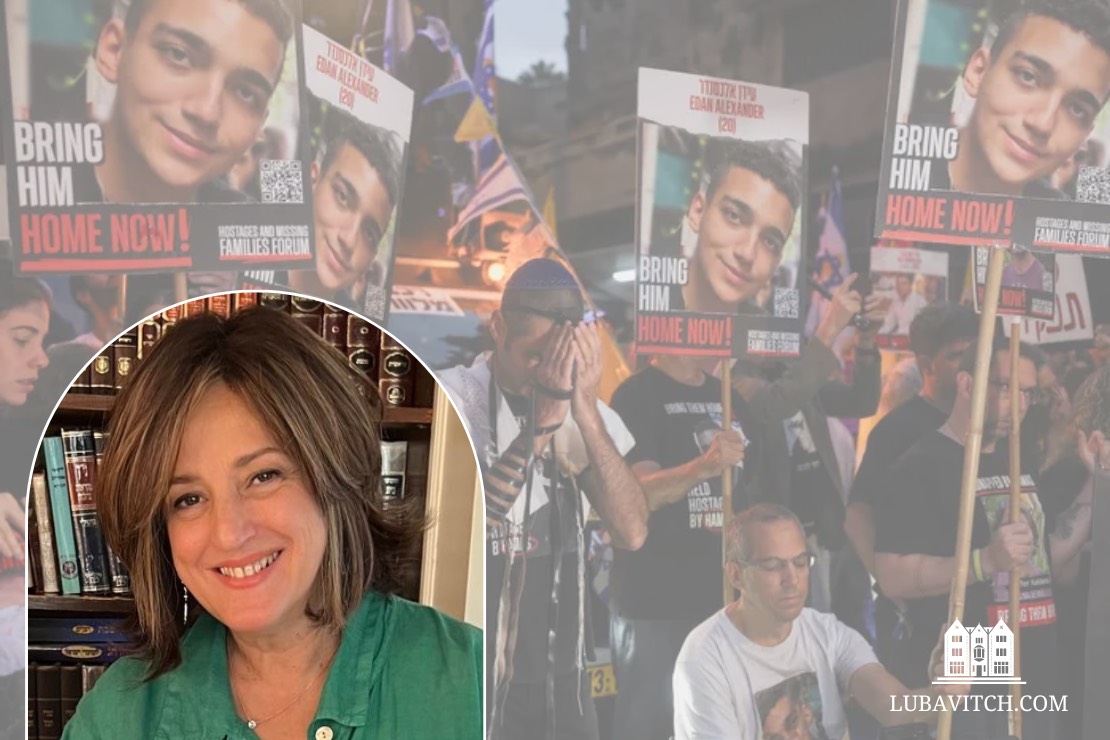It was a sunny, balmy day when I visited the site of the Nova Festival, and the Nahal Oz army base several months ago. As we stood in the charred remains of the observation room, where the young IDF heroines on duty on the morning of October 7 were burnt alive, a rabbi recited the Kaddish. The place was a charcoal shell, soot, ashes and the smell of smoke still filling the air. I heard myself uttering the plea–which we now say every day in the prayers between Rosh Hashanah and Yom Kippur: Avinu Malkeinu, our Father or King, avenge the spilt blood of your servants.
It reminded me of my visit to Poland some years back when I walked through the barracks and stood speechless at the ovens in the Auschwitz-Birkenau death camp. The earth outside was covered in a carpet of fresh green grass, as if to conceal what happened there, as if to silence the voices of the murdered millions who continue to call out. But I heard. I heard their voices “crying out from the ground.” The sun was setting, the buses were leaving, but I couldn’t tear myself away. I owe them, I thought, as their unheeded cries thrummed in my head.
The October 7 pogrom opened an old pandora’s box. The questions asked about G-d during the Holocaust and through our long history of persecutions were raised again on that black day. Where was G-d? Where was His infinite mercy in our moment of need? Yet at the funerals of all the murdered, mourners chanted the Kaddish: Yitgadal v’Yitkadash Shmei Rabbah they said while burying their loved ones who were slaughtered when no one came to their help. The prayer extolls G-d’s greatness. Although confused by what felt like His absence, I too found myself crying out to Him to avenge the spilt blood of our people.
A year later, when hostages are still being held and Israel continues to fight for its life, I am not sure how to understand this. How do we understand the Jews of the shoah who went to their deaths with the Ani Maamin–”I believe”–on their lips? What was this declaration of faith about? Why do we keep talking to Him even when He doesn’t seem to be responding? We deeply want to keep Him in our lives, to maintain our bond with Him even when we feel He fails us. Why?
I am not the first to wrestle with this question and I won’t be the last to accept that it remains unresolved–that I cannot plumb the depths of the mystery around this relationship, and around the unrelenting faith that the Jewish people continue to avow in times of great darkness and profound uncertainty.
Just listen to the songs Israelis have been singing in recent months, and again on October 7. The lyrics are optimistic, promising that Israel will prevail. They are about our unshakable faith in G-d and His unbreakable covenant with us, his eternal people. About our strength to withstand all the attempts to destroy us. One song that has become wildly popular since October 7 declares the eternal survival of Israel: “For even in our highs and lows and in our most difficult hours, Hashem watches over us and none can overcome us . . . The people of Israel live.”
On the first anniversary of October 7, I listened to Israeli radio. All through the night, every individual who was killed in this attack was named, talked about and remembered. That’s how it is in Israel–every person counts, every death leaves a vacuum. The void is therefore huge, with Israel in profound mourning. And even as it mourns, it is pursued by persistent, powerful and ruthless attempts to annihilate us.
Why haven’t we given up? What is it that keeps the people of Israel going against an avalanche of evil bent on destroying us?
The late Rabbi Jonathan Sacks considered this question. He suggested that perhaps it is not certainty that defines our faith, but the courage to live in its absence. Maybe that is why, as ravaged as Israel was by the October 7 massacre and the subsequent attacks, its people have become stronger, not weaker, more determined, not hopeless.
Going into Yom Kippur, it is good to know that even as our questions stand in all their fullness, we are right to deepen our conversation with G-d. For it is especially in the great uncertainty of our time that this mysterious reservoir that we call faith makes it possible for us to gain and grow. Maybe this explains how we carry on instead of caving in, and why the brutal and barbarous enemies that surround us on all sides fail always to crush us.
Am Yisrael Chai. May the Jewish nation be inscribed and sealed in the book of life and peace.

Be the first to write a comment.